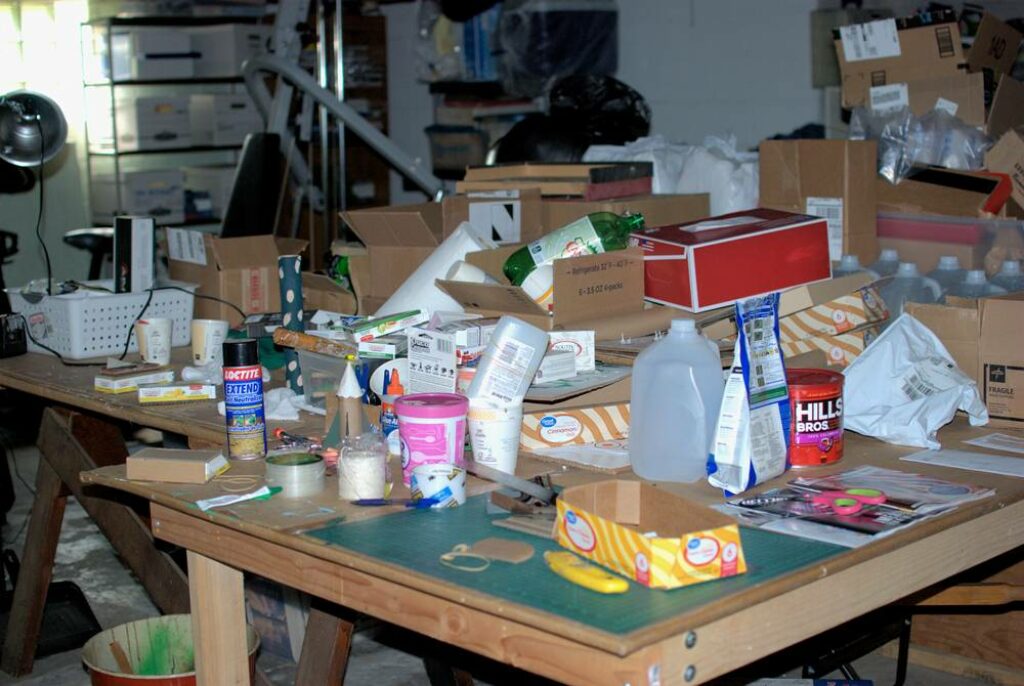
Hoarding Cleanup: Everything You Need to Know
Most people tend to assume that hoarding is merely a strong addiction of endlessly and mindlessly buying stuff that is not needed, or rummaging through bags and boxes that were put out. It’s actually a lot more complex than that, and leads to serious issues and consequences if left unaddressed.
Related Topics (Sponsored Ads):
Hoarding disorder is a mental illness characterized by the long – ongoing inability to discard possessions, trash, wrapping and other materials, regardless of their value or usefulness. Some amount of clutter is usually harmless, but hoarding creates an unsafe and unsanitary living environment, making certain areas of the home inaccessible.
The root cause of the development and severity of this disorder widely varies from person to person, and so no two cases are exactly alike. The disorder can persist for years and usually does not go away on its own. It’s important to understand that hoarding is not simply a matter of being messy, lazy or disorganized, but a serious psychological condition that requires professional intervention.
Therefore, in order to effectively address an individual’s hoarding problem and help them conquer it, it is crucial to first understand the initial causes and challenges it poses as a result.

The Causes and Consequences of Hoarding
This disorder can stem from various causes, including sentimentality, perceived value, and the fear of needing items in the future. It is also frequently associated with other mental health conditions. Individuals with this disorder may have difficulty making decisions, experience intense anxiety when discarding possessions, and struggle with organizing and managing their belongings.
The consequences of hoarding are far-reaching, affecting not only the hoarder’s physical health but also their relationships, productivity, social life, and overall quality of life.
The Posing Challenges
Cleaning up a hoarding situation poses multiple challenges. Hoarders often face emotional distress and resistance when confronted with the need to discard their possessions. The sheer volume of clutter and debris can be overwhelming, requiring specialized equipment, protective gear, and professional services to ensure safe removal and disposal of items. Additionally, addressing potential biohazards, such as mold, pests, or animal waste, adds another layer of complexity to the cleanup process.
Importance of a Professional Cleanup Team
Professional hoarding cleanup specialists play a vital role in effectively and safely addressing hoarding situations. They possess the necessary expertise, experience, and equipment to navigate the unique challenges of hoarding cleanup. These specialists are fully aware of the physical and mental aspects of hoarding and approach the cleanup process with compassion and sensitivity. By employing their services, individuals can ensure a thorough and efficient cleanup while minimizing the emotional burden on themselves and the hoarder.
Effective Strategies Regarding Cleanup and Organization
Successful hoarding cleanup and organization require careful planning and strategic approaches. Starting small and focusing on one room at a time can help build momentum and maintain a sense of accomplishment. Purchasing or creating a cleaning kit with essential supplies such as gloves, masks, trash bags, and cleaning solutions is vital to ensure safety and efficiency.
Beyond that, sorting items into categories / piles, such as “keep”, “donate”, and “discard”, can facilitate and improve the decision-making process to significantly reduce the amount of useless trash and clutter. Implementing sustainable organizing systems, such as labeling and storage solutions, can also be very helpful in maintaining a clutter-free environment.
Emotional Support During the Process
Recognizing the emotional toll of hoarding cleanup is essential. Hoarders may experience anxiety, guilt, shame, and a sense of loss during the process. Providing emotional support, therapy and reassurance can help alleviate these feelings.
Involving the hoarder in the cleanup process and respecting their autonomy in decision-making can foster a sense of empowerment and cooperation. Additionally, seeking the assistance of therapists or support groups specializing in hoarding disorder can offer invaluable guidance and encouragement throughout the cleanup journey.
After all, the strongest and most effective method of treating the hoarding problem is with positive reinforcement. Gently remind the individual of how much good he/ she is doing for their physical and mental health by letting go of trash and items they can’t use or don’t need. Tell them how their donations will make a difference for others, and reassure them that having a clean home will do wonders for their wellbeing and every facet of their life.
Tips For Maintaining A Clutter-Free Environment
After completing the hoarding cleanup process, it is crucial to establish strategies for maintaining a clutter-free environment. Regular cleaning routines and decluttering sessions can prevent the accumulation of possessions. Setting realistic goals and creating a personalized organization system can help individuals stay organized and minimize the chances of relapse.
Ongoing emotional support and therapy can also be beneficial in addressing underlying issues contributing to hoarding tendencies. By implementing these strategies, individuals can strive for long-term success in maintaining a clutter-free and healthier living space.
Final Thoughts
Overall, hoarding cleanup is a multifaceted process that requires understanding, empathy, and expertise. By addressing the initial causes, consequences, challenges, and solutions associated with hoarding disorder, individuals can approach the cleanup process with knowledge and compassion, and help create a safe and clutter-free environment. Treating this disorder takes some time and patience, but the results will bring immense relief to both the hoarder and everyone in his/ her life.




